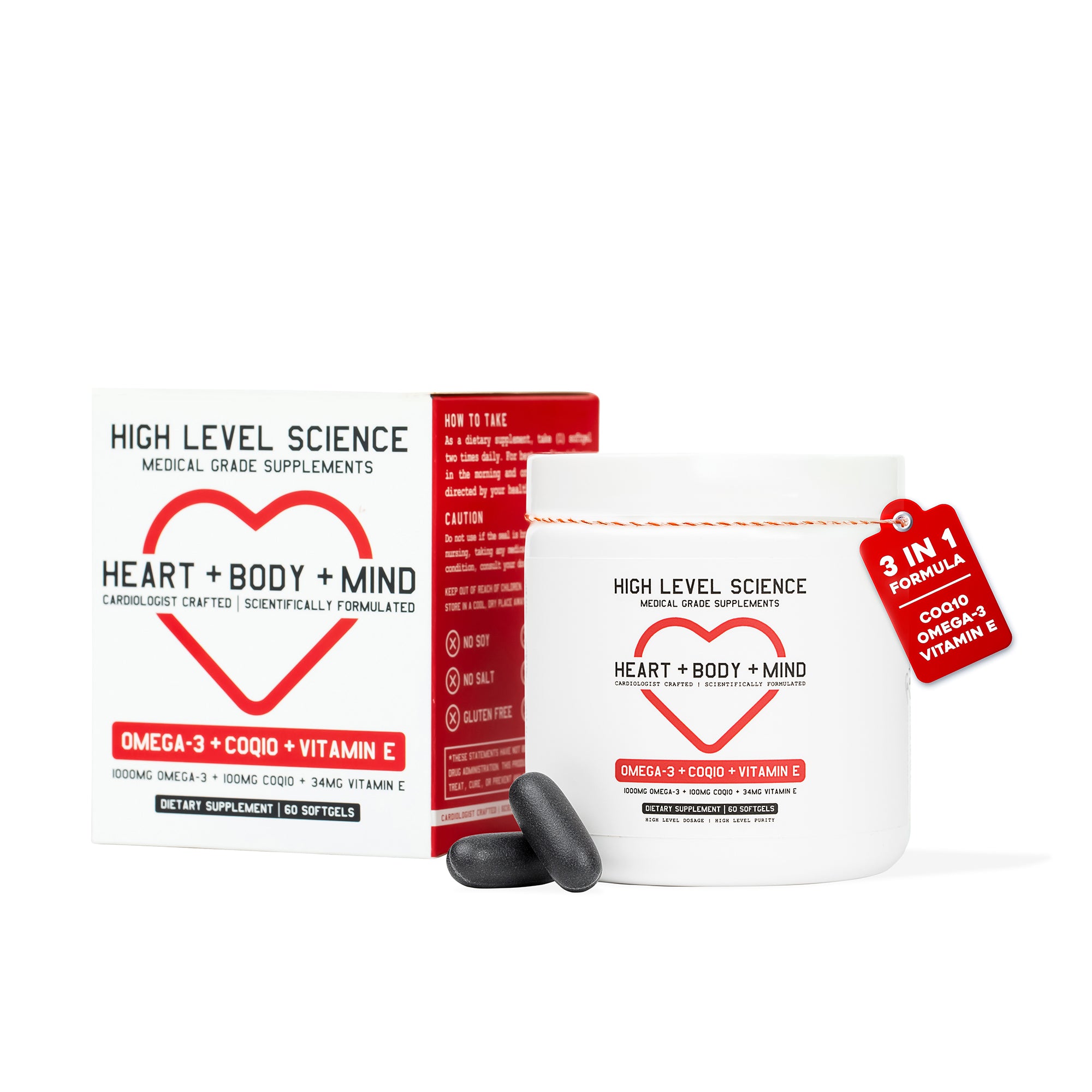Cardiovascular health is crucial for overall well-being, and there’s a lot you can do to support your heart. Here, we’ll explore some scientifically-proven tips to boost your cardiovascular system’s performance and longevity. These suggestions are easy to incorporate into your daily life, and they’re backed by research.
1. Understanding the Importance of Regular Exercise
Regular physical activity can significantly lower the risk of heart disease. It strengthens the heart and improves circulation, which can lower your blood pressure and cholesterol levels. According to the American Heart Association, even small amounts of exercise, like daily walks, can greatly benefit heart health by enhancing cardiovascular efficiency. Committing to 30 minutes of moderate exercise, like brisk walking, five days a week is sufficient to make a difference. Moreover, integrating other exercises such as strength training twice a week can provide additional benefits by building muscle and burning more calories.
You might be wondering how to get started. Consider starting with something as simple as using stairs instead of the elevator, or perhaps parking farther away to add more steps to your day. As research suggests, low-intensity activities such as gardening or light housework also count as part of your activity quota. The critical point is to engage consistently in these activities, as every little bit adds up to create substantial enhancements in cardiovascular support over time.
2. The Power of a Balanced Diet
Eating a diet rich in fruits, vegetables, whole grains, and healthy fats contributes to better cardiovascular support. Omega-3 fatty acids, in particular, play a significant role in enhancing heart health. Diets that focus on these elements, such as the Mediterranean diet, have been shown to reduce the risk of heart disease. This diet emphasizes whole foods and healthy fats like olive oil and nuts, known for their heart-healthy benefits. Implementing these dietary principles can result in lower cholesterol and blood pressure, making it a heart-friendly choice.
Moreover, emerging research on diets highlights the critical role of the gut microbiome in cardiovascular health. Foods that support a diverse gut microbiome, like fermented foods and high-fiber options, may indirectly contribute to improved heart health. For instance, vegetables rich in fiber are not only excellent for digestion but also have a positive impact on heart health by helping regulate metabolic processes linked to cardiovascular conditions.
3. Managing Stress Effectively
Chronic stress can lead to heart problems, so finding ways to manage stress through mindfulness, meditation, or yoga can be beneficial for your heart. Techniques such as deep breathing exercises or guided imagery can significantly reduce stress levels, positively impacting your cardiovascular health. If you’re looking to make meditation a regular practice, apps and online resources offer guided sessions that can help establish a routine. Incorporating mindfulness into everyday activities by focusing on the present moment is also an effective strategy.
Apart from individual strategies, there’s significant value in community or group activities aimed at stress reduction. Group yoga classes, for example, not only provide the physical benefits associated with yoga but also foster social connections, contributing to a sense of belonging and emotional support. Expanding your network of support through such communal activities can play a crucial role in maintaining lower stress levels, thereby offering another layer of protection for heart health.
4. The Benefits of Quitting Smoking
Smoking cessation is one of the most impactful ways to improve heart health, as it reduces the risk of developing heart disease significantly. Quitting smoking can start to heal your body almost immediately; within 24 hours, the risk of a heart attack decreases. The longer you stay smoke-free, the more your body’s risk levels decrease back to those of a non-smoker. Support groups and cessation programs provide valuable resources for those looking to quit. Strategies like nicotine replacement therapy and prescription medications can be helpful tools for managing withdrawal symptoms and fighting urges.
Interestingly, many people find that pairing smoking cessation with positive lifestyle changes, like an improved diet or increased physical activity, can lead to greater overall success by redirecting attention and energy towards healthier habits. For those who used smoking as a stress-relief mechanism, substituting this with activities such as exercise or meditation can reduce stress effectively without adverse effects, enhancing both psychological well-being and cardiovascular health.
5. Why Monitoring Blood Pressure Matters
Regular monitoring of blood pressure helps in early detection of any potential issues, allowing you to take corrective measures before they develop into severe cardiovascular problems. Blood pressure can fluctuate due to various factors, including stress, diet, and physical activity levels. Therefore, regular monitoring can provide a clear picture of your heart health over time. Devices for home blood pressure monitoring are becoming increasingly accessible and easy to use, making it simpler than ever to keep track of your cardiovascular health on a day-to-day basis.
6. Incorporating More Physical Activity into Daily Life
Even small increases in physical activity, such as taking the stairs or going for short walks, can make a significant difference in heart health. Often, people think that exercise equates to having to spend hours at the gym, but in reality, integrating more movement into your routine can be quite simple. Think ‘active breaks’ during work, which could just be standing up to stretch or walking around the office. These actions might seem minimal, but over time, they accumulate to support cardiovascular strength and overall fitness levels.
7. The Role of Sleep in Heart Health
Adequate sleep is essential for heart health. Poor sleep quality can lead to increased risk for cardiovascular issues. During sleep, the body undergoes various processes vital for maintaining heart function and systemic regulation. Studies suggest that poor sleep, whether in quality or duration, could increase the risk of developing hypertension and contribute to a heightened stress response, adversely affecting heart health. Establishing a bedtime routine and limiting screen time before bed can improve sleep quality.
8. Understanding the Impact of Alcohol Consumption
Moderation is key when it comes to alcohol, as excessive consumption can lead to high blood pressure and other heart-related problems. While some studies have suggested that moderate red wine consumption might offer heart benefits, the potential risks of alcohol consumption often outweigh these benefits. It’s crucial to understand the limits of moderation, typically defined as up to one drink per day for women and two for men, without focusing on the type of alcohol consumed.
9. The Benefits of Staying Hydrated
Hydration affects circulatory health, and consuming adequate water daily helps maintain blood flow and supports heart function. Interestingly, staying hydrated helps the heart pump blood more efficiently, allowing muscles to work optimally, which is particularly beneficial during physical activities. Adequate hydration is also linked to the regulation of body temperature and joint lubrication, indirectly supporting cardiovascular well-being through overall physical health.
10. Exploring Heart-Healthy Supplements
Certain supplements, such as CoQ10, may offer additional support for maintaining good cardiovascular health when taken in consultation with a healthcare provider. Studies have shown that CoQ10 supplements can help with blood pressure regulation and offer antioxidant support, protecting the heart from oxidative stress. The Heart + Body + Mind supplement by High Level Science combines CoQ10 with Omega 3s and Vitamin E to provide an integrative approach to cardiovascular and cognitive health improvement. This exclusive formulation is designed with the highest standards, backed by the expertise of Dr. David Rizik.
11. Limiting Saturated and Trans Fats
Reducing the intake of saturated and trans fats can help decrease cholesterol levels and improve overall heart health. These unhealthy fats are found in many processed and packaged foods, so it’s vital to read labels carefully. Instead, opt for foods high in unsaturated fats such as avocados, nuts, and olive oil. Substituting these healthier fats into your diet has been shown to have positive effects on cholesterol levels and overall cardiovascular health.
12. Benefits of Regular Health Check-ups
Routine check-ups can help catch cardiovascular issues early, allowing for timely intervention and better management. These appointments are an opportunity to discuss any heart disease risk factors, such as family history, and to receive tailored advice on maintaining heart health. Healthcare providers can offer insights into lifestyle changes and preventive steps to ensure optimal cardiovascular functioning. Early detection is powerful in managing or preventing the progression of heart-related conditions.
13. Embracing a Heart-Positive Mindset
Having a positive attitude towards heart health can inspire lasting lifestyle changes that greatly benefit cardiovascular support. Approaching your heart health journey with optimism can foster motivation for consistent exercise, healthier eating, and stress management. This mindset not only helps in making informed lifestyle choices but also serves as a psychological boost, paving the way for sustained heart health improvements over time.
14. Encouraging Family and Community Support
Having a support system can motivate you to maintain heart-healthy habits, making it easier to stay on track. Sharing goals with family or friends and participating in group activities can make lifestyle changes more enjoyable and sustainable. Whether it’s a family walk or a community cooking class focused on heart-healthy meals, the social element adds joy and accountability to your heart health journey.







Leave a comment